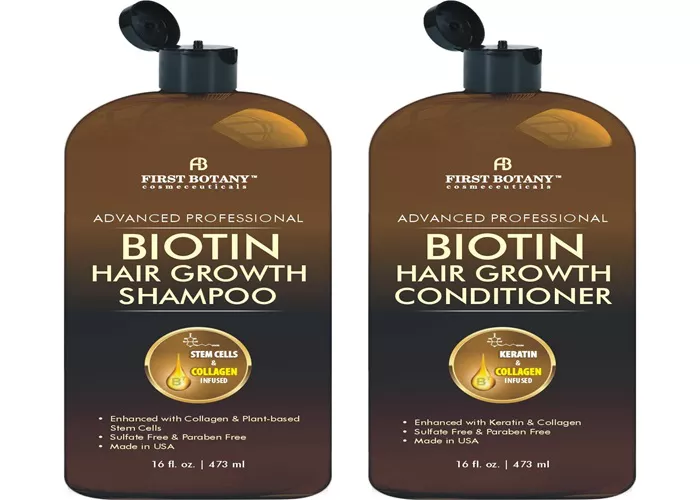Sulfates are common ingredients in hair care products, especially shampoos. They create the rich lather that many people associate with clean hair. However, there is ongoing debate about their safety and suitability for different hair types. This essay explores the types of sulfates used in hair products, their benefits and drawbacks, and identifies which sulfates are best suited for specific hair needs.
By the end, you will understand how to choose sulfate-based products wisely for healthier, happier hair.
What Are Sulfates?
Sulfates are surfactants (surface-active agents) that help remove dirt, oil, and product buildup from hair. They work by lowering the surface tension of water, allowing it to mix with oils and rinse them away. Sulfates are derived from petroleum or plant sources and are categorized by their chemical structure. The most common sulfates in shampoos include Sodium Lauryl Sulfate (SLS), Sodium Laureth Sulfate (SLES), and Ammonium Lauryl Sulfate (ALS). While effective cleansers, their strength varies, impacting hair and scalp health differently.
Types of Sulfates in Hair Products
Sodium Lauryl Sulfate (SLS)
Definition: SLS is a strong surfactant known for its deep-cleansing properties.
How It Works: It creates a rich lather and efficiently strips away oils.
Benefits:
- Ideal for oily hair, as it removes excess sebum.
- Effective for removing heavy product buildup (e.g., gels, waxes).
Drawbacks:
- Can strip natural oils, leading to dryness and irritation.
- May fade hair color faster.
- Not recommended for dry, curly, or sensitive scalps.
Sodium Laureth Sulfate (SLES)
Definition: SLES is a milder surfactant modified with ethylene oxide.
How It Works: It produces a creamy lather and is less harsh than SLS.
Benefits:
- Gentle enough for daily use on normal to slightly oily hair.
- Less likely to irritate the scalp.
- Compatible with color-treated hair in moderate concentrations.
Drawbacks:
- May still cause dryness in very dry or damaged hair.
- Ethoxylation process can leave trace contaminants (e.g., 1,4-dioxane), though regulated.
Ammonium Lauryl Sulfate (ALS)
Definition: ALS is a mid-strength surfactant with stronger cleansing than SLES but milder than SLS.
How It Works: It creates a foamy lather and works well in hard water.
Benefits:
- Effective for removing residue without extreme dryness.
- Suitable for normal to oily hair types.
Drawbacks:
- Can still irritate sensitive scalps.
- Less common in commercial shampoos.
Comparing Sulfates: Which is Best for Your Hair?
- Strength: SLS > ALS > SLES (strongest to mildest).
- Lather: SLS creates the most foam, followed by ALS and SLES.
- Irritation Risk: SLS is most irritating; SLES is gentlest.
Hair Type Recommendations:
- Oily Hair: SLS or ALS can control excess oil.
- Normal Hair: SLES offers balanced cleansing.
- Dry/Damaged Hair: Avoid SLS; opt for SLES in diluted formulas.
- Color-Treated Hair: SLES preserves color longer than SLS.
- Curly Hair: Sulfate-free options are best, but SLES in mild shampoos can work.
- Sensitive Scalps: SLES or sulfate-free products reduce irritation.
Myths and Misconceptions About Sulfates
Myth 1: “All sulfates cause cancer.”
Fact: Regulatory bodies deem sulfates safe in cosmetics. Concerns about 1,4-dioxane in SLES are addressed via strict purification standards.
Myth 2: “Sulfates cause hair loss.”
Fact: Sulfates don’t directly cause hair loss but may exacerbate scalp irritation in sensitive individuals.
Myth 3: “Sulfate-free shampoos don’t clean well.”
Fact: They clean gently but may require more product for oily hair.
Alternatives to Sulfates
For those avoiding sulfates, consider:
- Sodium Lauryl Sulfoacetate: Derived from coconut, it’s gentle and foamy.
- Decyl Glucoside: A plant-based, non-irritating cleanser.
- Cocamidopropyl Betaine: Boosts lather in sulfate-free formulas.
Conclusion
The “best” sulfate depends on your hair type and needs. SLES is generally the safest bet for most people, offering effective cleansing with minimal irritation. SLS suits oily or resilient hair, while ALS strikes a middle ground. Always consider your hair’s unique needs—moisture levels, scalp sensitivity, and chemical treatments—when choosing products. For those prioritizing gentleness, sulfate-free alternatives are worth exploring.
By understanding sulfates, you empower yourself to make informed, personalized hair care decisions.
Related topics:
Hello Glow Launches Affordable Sulfate-Free Keratin Hair Care Line
6 Best Sulfate-Free Shampoos in 2025
Does Ferrous Sulfate Cause Hair Loss: Things You Need To Know


